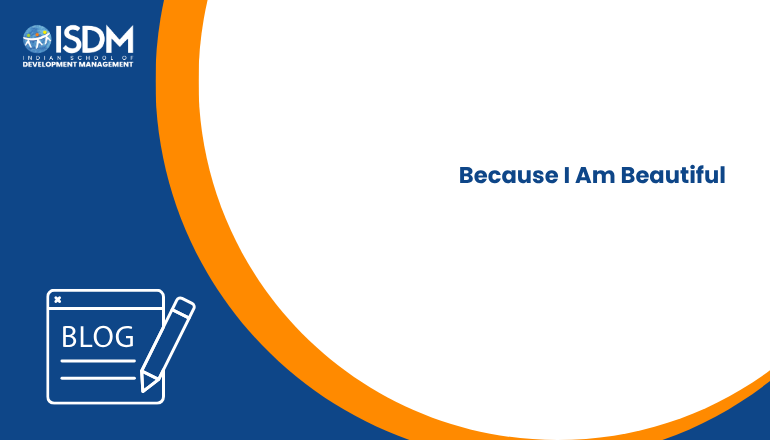In a world where people are proudly calling themselves ‘feminists’, nobody paid attention to this issue of ‘colour discrimination’. Like patriarchy, it’s so much imbibed in us! People would be sensitive to the poor people living around them, to the environmental issues, to domestic violence and many such issues. It’s appreciable, but where is humanity while commenting on a friend with dark skin “iss ka toh chehra hi aisa hai”? These coloured comments are not new to me. I have grown up with such comments. People using all kind of filters while clicking a picture with me, to being happy on Holi by looking at me as on this day my skin colour is not visible. There are times when some of my friends would suggest me to not upload certain pictures because I would be looking darker in those in comparison to others. When I never have had any issues on the way I look, I would never understand why other people have issues with that!
There is a difference in ‘being pretty’ and ‘being beautiful’ – people get confused between these two, I feel. Though most of us must have written an essay in our lifetime on ‘beauty is skin deep’, we tend to forget the meaning of it. These lines are limited to our textbooks only. Beauty is not just sheer prettiness, it comes from within. All we need to be is Sylvia Plath’s Mirror – being neutral. Our innate nature of associating coloured skin to inferiority shows our hollowness, not the other person’s inferiority.
Inequality lies in all forms in society. Like we are working in various spheres to bring equality, now it’s time that we start discussing colour discrimination in public forums and make people realize that coloured comments are not cool. And to do this, first, we need to look within ourselves, we need to convince ourselves that beauty isn’t just about specific physical features- it is in our mind. We need to convince ourselves that we are beautiful. Paid media and the beauty industry are to be blamed for this deep-rooted mindset in society. Fair and Lovely to Sabyasachi, they all use a particular type of models in their marketing- fair, thin and so on. More than half of the population in the world does not look like these models. Society glorifies these models, that they look divine. People try every possible way to look like them, go under knives, try every possible beauty treatments but the only thing they forget to do is appreciating the way they are. It leads to a lack of self-confidence in them. They spend almost all of their lives aspiring to be like someone else and forget to achieve something meaningful.
The biggest victims of this phenomenon are women. If you are dark-skinned, from the first day of your birth society is going to condemn and feel petty on you – as no one will marry you. Prettiness and females have a deep connection in our society. Being a female your competencies does not matter to anyone, these are extras. What matters the most is how you look – skin colour, all physical features being at the right place – in the right proportion, having so-called feminine features like least possible hair on your body, pink lips and large eyes and what not!
Beauty lies in strength. Beauty is who you are as a human being. Beauty is being kind to each and everyone around you irrespective of their caste, class, gender or skin colour. Beauty is gracefully accepting that these people are victims of the discriminating society. Beauty is self-love and self-respect irrespective of all those rejections. Beauty is not giving a damn about all these. Beauty is knowing your own worth.
Source: https://www.youthkiawaaz.com/2019/04/because-i-am-beautiful/




